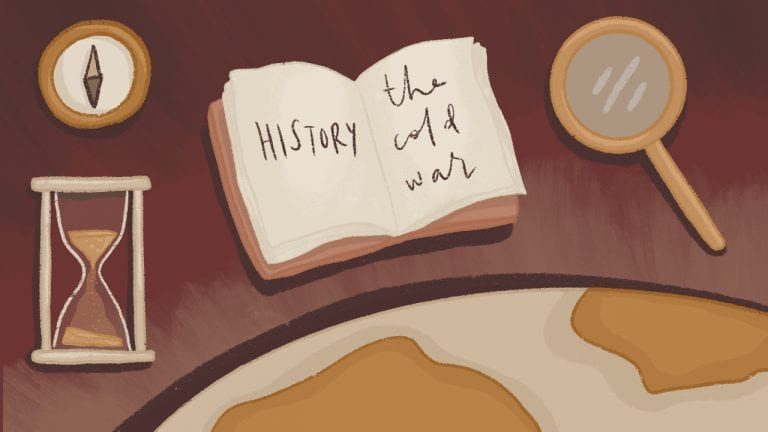
History: Dates, Names, and How to Memorize Them

History is a recounting of the stories of our previous ancestors and what they have accomplished during that era. It is a very intricate flow of events recorded by thousands of historians over the course of millennia all to allow the future generation to know the accomplishments and events of the people in the past. But it is also a very tedious and time consuming subject to become good at.
History as a subject requires a lot of memorization of different names, places, events, and dates which are deemed important and noteworthy. This single reason is why students tend to lean towards other subjects when asked what their favorite subject is. But what if there are ways to improve how to memorize these dates, names places, and events that occurred in the past. Continue reading to find out how.
Why is History important?
Before we discuss how to memorize historical names, places, events, and dates, we must first discuss why History is relevant even until today. As previously mentioned, History is the collection of important events, persons, places and dates which happened or existed before we were even born.
By having reliable accounts of remarkable feats our ancestors have accomplished, we can look at them as milestones of the human civilization and all of these events have helped lead the world to what it is today. Little by little, we can infer the lives of our ancestors before the digitalized era, we can learn from the previous mistakes of our ancestors, and we can celebrate the important events that occurred in each of our countries which have helped it become what it is at the present.
How History looks like in the eyes of students
The stereotypical view of History is that it is boring, uninteresting, energy-consuming, and serve no purpose other than to make historical puns to impress your friends. This often leads to even more individuals becoming uninterested with the subject even before they even give a little bit of effort to understanding the subject.
Common problems students face with History
As mentioned earlier, most individuals view History as just another subject which consumes a large portion of their time trying to teach them things that has already happened. However, the causes for this view are not because of the subject itself, but rather, is a collection of phenomena which all pile up to lead to the previously mentioned view. A few of these phenomena are:
Memorizing instead of understanding
Students tend to cram all the information they can get from the subject and try to brainlessly memorize them like some sort of machine. This is often detrimental not only to your will to continue on with the subject but also places great stress in your brain.
Instead of passively trying to dump all the information fed to you by your professor, try to understand what happened in that situation and how that event helped lead to the next important event in the lecture. Think of History as a very long and never-ending narrative and you might be able to find understand the events that took place.
Too much information
This is often the one of those scenarios where your professor feeds you too much information over a short period of time and becomes too much for your brain to handle. However, this event can also happen even without a teacher. For instance, reading too fast for your brain to grasp the overall situation of a certain historical moment can often lead to you not understanding the event, and thus forget the details of the entire event completely.

Poor time management
As History is not treated as a major subject by a lot of courses, students tend to shrug off the minor History subject which gives them even less time to prepare for the subject, which can lead to even more difficulty with the subject along the way. Poor time management is not only the bane of History, but is also the bane of most subjects as well.
Used less outside the classroom
Information you get from studying History is often already marked on the calendars, and is mostly the only time you will remember that historical event. As historical facts tend to be less handy and practical than medical or science related facts, we often get little chances to utilize what we learned in History outside of school which can lead to that memory fading into your brain’s archives.
How to become better at History
Since you are now currently knowledgeable that it is not the subject’s fault that it is so uninteresting and tedious, you can then start to work on certain areas to help you improve on memorizing important names, places, dates, and events in History. Listed below are the steps you can take to improve your chances of memorizing the names and dates of historical figures and events:
1. Take good notes/outline
It is no secret that good notes contribute greatly to the success of an individual with regards to a given subject. History is no exception to the rule and will benefit greatly from good notes. Try to include important details in your notes and arrange them accordingly to avoid any chances of random dates flying out of nowhere whenever you open your notebook.
Taking notes can also serve as a way to study, albeit unconsciously, as your brain needs to read the details written in your source material in order for you to write effective notes. Good notes can also help you a lot when you review the topic as you can easily recall the rest of the previously discussed lessons with the help of your well written notes.
If you want to up your note-taking game a notch and have free time, then you can try to make an outline or summary of the events and historical figures you are currently studying. This helps you better understand the events as you are writing your own, summarized version of the events and people involved in it and can greatly increase your ability to recall said information.
2. Create flowcharts of events
History is often taught in batches of related events which tend to have a general timeline to follow. You can then exploit this and create your own flow chart of events along with their corresponding historical figures and places. Start with the very first event and work on the next event until you reach the end of the current lesson you are studying.
By doing so, you have eliminated any form of confusion you may experience as the events are now in chronological order. This makes your previously made notes and summary even useful as you can then transfer the contents in it into your flowchart.
3. Understand what happened
Rather than try to memorize every event, people, place, and date mentioned in your source material, why not try to first understand one event from the series. After that you can work on understanding how that event leads to another and why that person was relevant to that event.
By understanding what happened and why it was deemed important by historians, you can understand why those people and dates mentioned in the source material are relevant. After that, it is just a quick visit down memory lane (or palace if you have read our previous article about it) to try and recall the names of the relevant individuals and the dates in the event.
4. Think of History as a novel
History tells a story, although not as interesting and attention grabbing as fantasy or other genres. If you were to stop looking at History as this thick textbook of what happened in the past and look at it as a collection of stories which has made a huge impact towards the march of human kind up to this day and age, then you can start to be less irritated and distraught by the subject ad start to gain interest in it a little.
The more motivation and enthusiasm you have towards History will greatly affect the outcome of your test results. Even just a change in perspective can allow you to learn History faster. All you need now is to study the outlines you made as if you were reading the events of a novel, and let’s be honest here, it far easier to remember the name of a novel’s main character than it is to remember the name of the dude who killed the other dude because of some reason you don’t remember.
5. Repetition of study sessions
After you have finished all of the steps we have mentioned for memorizing historical names and dates, the next thing you should do is to continue with the routine of taking down notes, understanding the evens, and studying your notes over and over again.
There is simply no easy way out of the memorizing game in History, but what you can do is to give it more effort than you would have before reading this article. Take time to repeatedly study the notes you make to ingrain the historical figures, places, events, and dates that are so hard to memorize.
6. Ask a tutor for help
This is a little bonus tip but can also be very useful if you are still having trouble memorizing the names and dates important to History. You can always ask help from a tutor to help you understand the events better and make you more capable of memorizing historical figures and dates.
And what place would be more suited for you if you seek tutorial help than at FamilyTutor? We are a home tuition in Singapore that have thousands of capable and skilled home tutors ready to be hired at the click of your cursor. We have a large variety of subjects to choose from and can cater the needs of pre-school students up to university level students. What’s more is that our rates are sure to be at market value or lower to give the best quality home tutoring services for the lowest price.

Carelle
Carelle is a teacher who has been through the ups and downs of the teacher and learner life. She wishes for every learner to gain educational satisfaction that will help embody the people they want to be in the future.
Tell Carelle Below What You Think About Her Post!

About FamilyTutor!
FamilyTutor is an established home tuition agency in Singapore! We match suitable home tutors for our clients not just to improve the students' academic grades, but also to build a strong rapport and meaningful relationship with the students and even the their whole family. FamilyTutor put every student in good hands!
If you need an excellent home tutor, feel free to call/WhatsApp us at +65 8777-2168! Our matching service is free!
Related Posts!
Follow Us On Facebook!
Education Levels
National Exams
Math & Science Subjects
Language Subjects
Japanese Tuition
Korean Tuition
German Tuition
Humanities Subjects
Social Studies
Chinese Literature Tuition
About Us
FamilyTutor is an established and the people’s favourite home tuition agency in Singapore! We match a suitable tutor for you not just to improve the student’s grade, but also to build a good rapport and meaningful relationship with the student and even with the student’s whole family! With FamilyTutor, every Singaporean son & daughter is in good hands.
Contact Us
- 8777 2168
- 8777 2168
- Mon-Sun 9am-10pm (Including PH)
- contactus@familytutor.sg
- 17 Petir Road Singapore 678278



